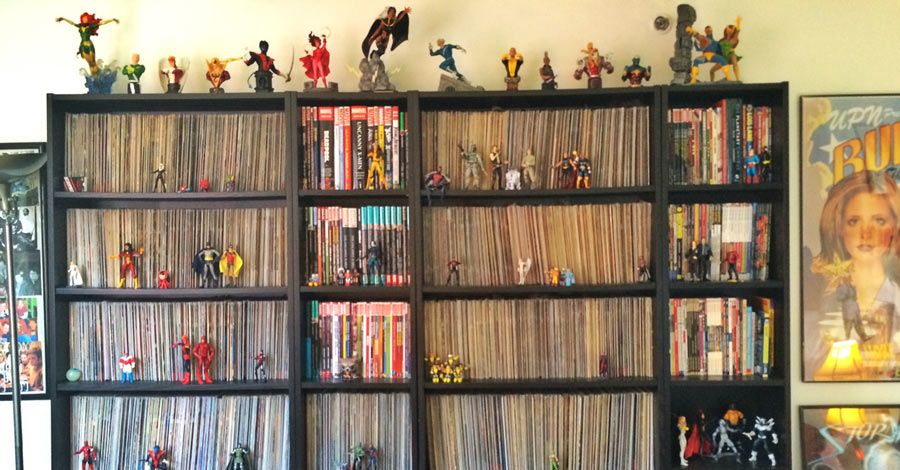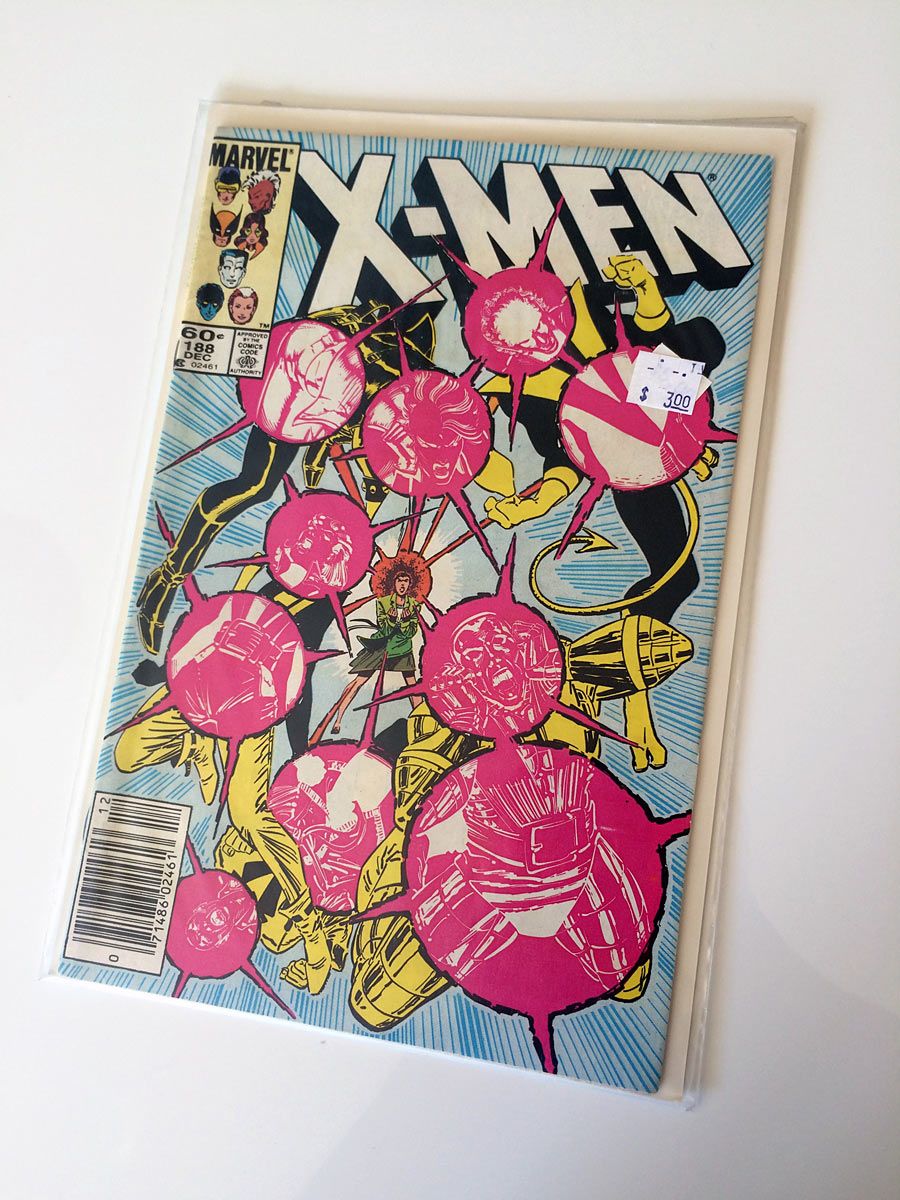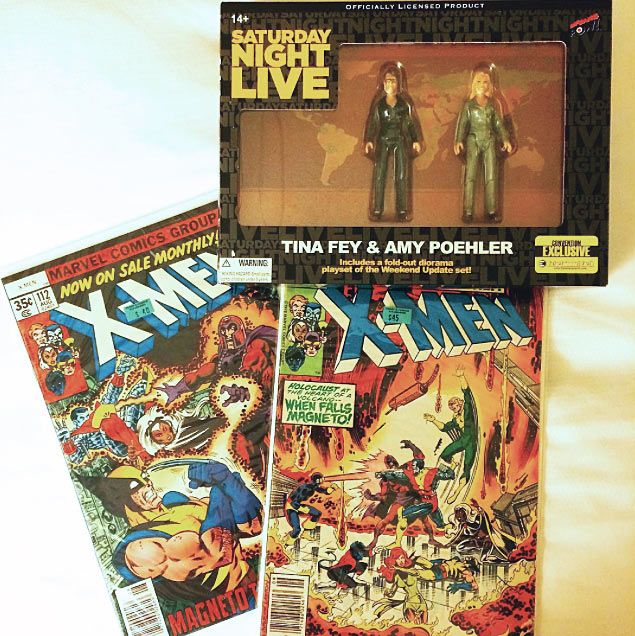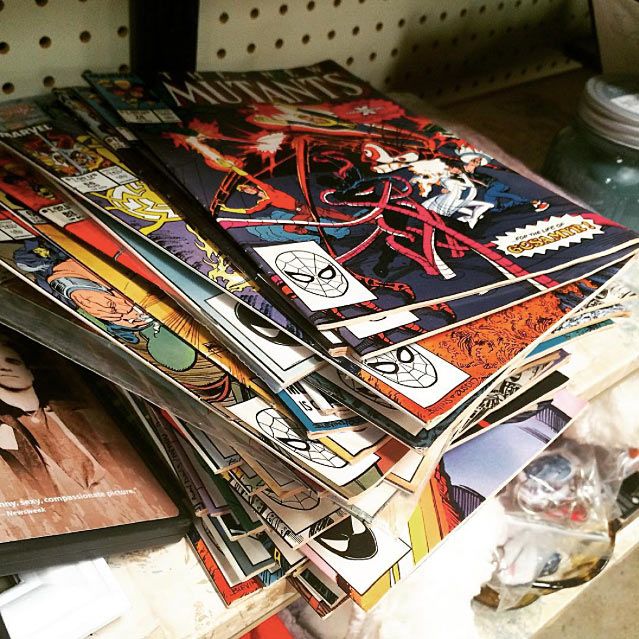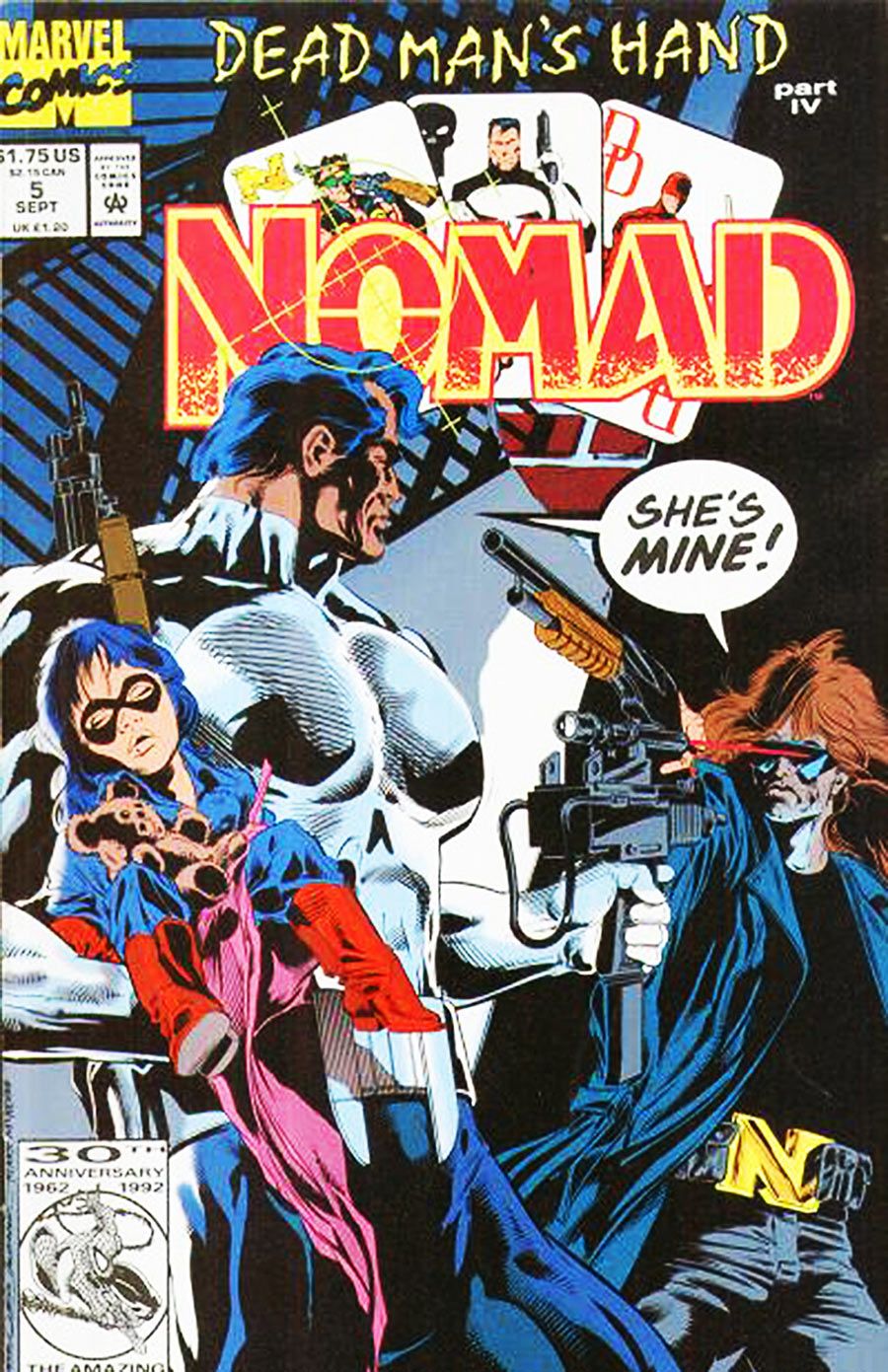Flea markets, antique stores, thrift shops -- if there are comics in them, I will find them. That's my mission statement, my threat, my curse. But I'm a comic book collector, so of course my first thought upon traveling anywhere is, "Where can I find beat up old comics?" I want to find them, I want to liberate them from their Ziploc bag or wicker basket prison and treat them right -- which means catalogue, bag and board them and shove them on a shelf.
All this sounds normal for a comic book fan, right? I've always thought so; pop culture has always portrayed comic fans as those that both read and hunt for back issues, obsessed with finding a particular character's first appearance no matter the cost (my selfish quest for to own Siryn's debut ruined Christmas 2001 -- but that's another story!). But as much as I love reading comics and collecting comics, it's more clear to me now than ever before that they are two almost completely separate hobbies and it's foolish to assume anyone who does the one does the other.
Reading comics is exactly what it sounds like -- reading comics. It's taking in stories, a page by page, and appreciating the art, words, characters, all that. Collecting comics, on the other hand, is what's happening to my right as I write this -- a bunch of nearly seven-foot-tall IKEA bookcases crammed with 5,237 bagged-and-boarded single issues. This... this is my life's work. My life's work also makes moving apartments a complete horror show.
Quick aside because this is something I'm passionate about and rarely find the time to work into a JAM: stop storing your comics in cardboard longboxes just because that's how it's always been done! Storing comics in a filing cabinet-style system that sticks out multiple feet form any wall, involves stacking and/or having cardboard on display just baffles me. Bookshelves, guys. They take up a foot of floor space, tops, provide easy access for every issue in your collection, and they look infinitely more adult than cardboard. I've broken up the monotony of bland comic spines with action figures that serve as alphabetical markers, and IKEA also makes various types of doors that can be placed on their BILLY series of bookcases. You have options, collectors! End aside.
This is all hitting me right now because my comic book reading and comic book collecting habits have never been more separated. I used to read everything physically. I was adding roughly 300 new comics to my collection per year as I kept up with dozens of ongoing series; this doesn't count back issues, which I have most definitely bought by the pound before. Getting an iPad changed everything and I started catching up with series and exploring other publishers digitally instead of through trade paperbacks. My physical pull list started to shrink.
Just a few years later and I'm down to just one title I buy physically -- "Uncanny X-Men." Everything else is all zeros and ones on my future-tablet. I decided to make this jump back when I started to work from home, since getting to Midtown Comics every Wednesday became completely impractical; I still don't have the latest issue of "Uncanny" because of this very reason. So I just read the comics I buy every week instead of collect them, as having access to a digital file provided by one of Amazon's step-children doesn't really have the same impact with me as sixteen pieces of newspaper folded in half and connected by a staple.
I'm a reader, though, and separating the art and experience of reading a comic from that of the hunt is rewarding. I finally caught up with all of "The Wicked + The Divine" on Monday night because it was right there in my hands already. I don't know what it's like to read the series physically, but I do think Jamie McKelvie and Matt Wilson's art pops on the iPad screen. Also considering just how dense Kieron Gillen's storytelling is, it really helped to be able to switch back and for the between multiple issues as opposed to flipping through physical pages. For #WicDiv, digital just makes sense to me -- and I now feel that way about pretty much every comic I read monthly.
"But hey, what's up with 'Uncanny X-Men'?" you're hopefully thinking, if I'm, like, engaging you as a reader and all that. "Why do you still buy physical copies of 'Uncanny' even if that means you haven't bought the latest issue -- which has been out for three weeks now?"
It's because I'm also a comic book collector and "Uncanny X-Men" represents the overlap of these two interests -- and it's also the source of my madness. The X-Men are my jam and "Uncanny X-Men" is the most mainest of all the X-Men's jams. It's the series that launched the franchise and it's been running in some form or another almost nonstop since 1963. I must own every single issue. See? Collector alert.
I don't know when I decided that owning every issue of "Uncanny" would be a Goal-with-a-capital-G of mine. In all honestly, I believe this was the implied end goal when I bought my very first back issue -- "Uncanny X-Men" #188 -- sometime in the spring of 1993. I haven't looked back since then, really, and the big gets in my "Uncanny" quest dot my decades of experience as a collector. I remember finally getting hold of "Uncanny X-Men" #266 at a mall kiosk of all places, and I cherish the extremely beat up "X-Men" #94 I bought at New York Comic Con a few years back. I started to celebrate every 1,000th comic book added to my collection by splurging on a more expensive back issue, and I try to fill out my run when I go to conventions (I bought "X-Men" #112-113 in San Diego this year).
I have every issue of "Uncanny X-Men" from #111 onwards, from June 1978 to present. I own roughly 87% of the series run -- I'm getting close! So no, I can't stop buying "Uncanny X-Men," because it's the one ongoing series that my collector brain won't let go of.
But I love collecting comics, and it's a love that has almost nothing to do with reading them. Yeah, I try to read every comic I buy, but the joy of reading certain comics does not outweigh the weirdly specific joy I get out of finding them in a shop or opening them up when they arrive at my apartment. Yes, I order comics online a lot; it's just easier to order issues of the '90s "Silver Sable and the Wild Pack" series, okay?
Just a few weeks ago I found the lone comic booth at a Flea Market in Sweetwater, Tennessee. I also saw a stack of '80s "New Mutants" issues at another booth whose focus was not comics; they were just there, in a heap next to nondescript DVDs and old candles. I already owned every single one of them, but the urge to get them outta there was great. I didn't. At the comic booth, I did buy six "Daredevil" back issues from 1992. Reading those issues, especially the tie-in issues of "Nomad" and "Punisher: War Journal" that I had to order online, is more... interesting than enjoyable. But finding them was fun; I'll forever associate them with that flea market, my family, and both of my nephews buying so much chewing gum for reasons I can't comprehend. With comic book collecting, that stuff matters more to me than the actual stories themselves.
I do want to quickly point out that Nomad was a Jon Bon Jovi-esque vigilante that fought criminals while wearing a costumed toddler like a backpack. Seriously, the '90s.
When I see comic book fans talk about unloading all of their back issues, I get panic-y, as if their decision to get rid of all that paper means that I will -- or should -- do the same. But that's not the case, at least it's not the case yet. Comic fans engage with the medium in many different ways, and reading ain't the same as collecting -- and nobody says fans have to do both. I can't assume that just because someone reads "Ms. Marvel" now cares in any way that I own "Ms. Marvel" #1 from 1977. They're two separate hobbies, and I get pleasure out of pursuing them both.
Brett White is a writer and comedian living in New York City. He made videos for the Upright Citizens Brigade as a member of UCB1 and writes for the podcast Left Handed Radio. His opinions can be consumed in bite-sized morsels on Twitter (@brettwhite).

